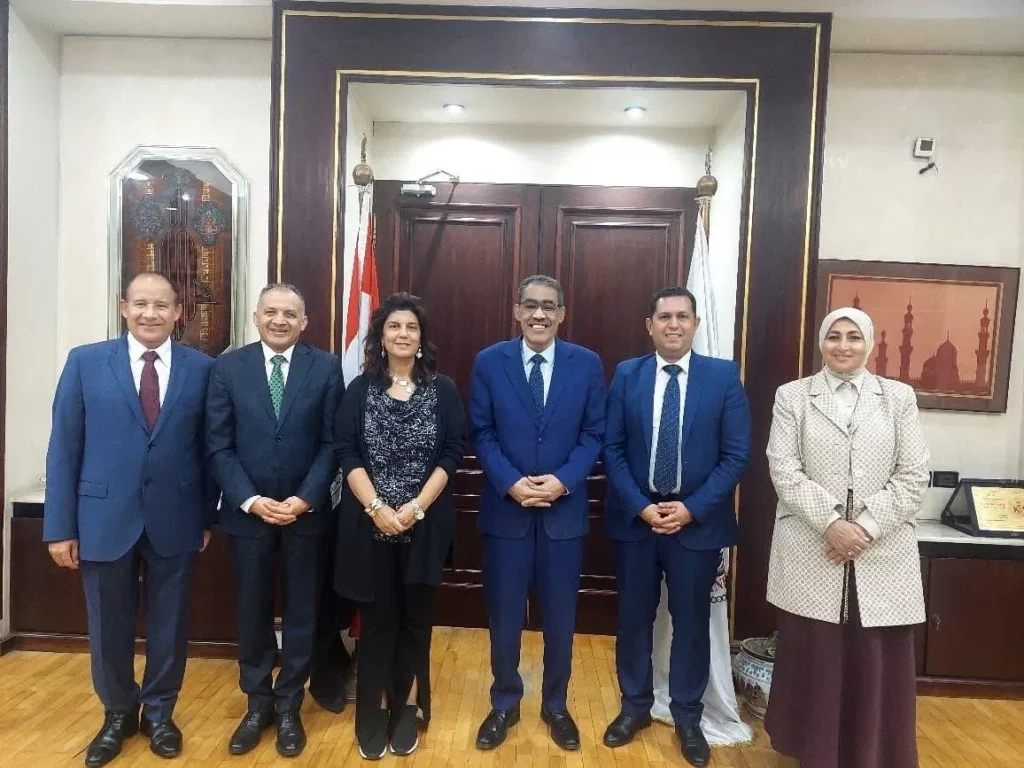Listen to the article
Egypt’s State Information Service Board Holds First Meeting Under New Leadership
The newly formed Board of Directors of Egypt’s State Information Service (SIS) convened its inaugural meeting this week, expressing deep gratitude to President Abdel Fattah El Sisi for his ongoing support of the national institution.
The board, chaired by veteran journalist Diaa Rashwan, gathered at SIS headquarters in Cairo’s Nasr City district to outline strategic priorities following their appointment by presidential decree. In an official statement, the directors emphasized the importance of their mandate to shape Egypt’s media narrative both domestically and on the international stage.
“The president’s decision to form this new board reflects confidence in the SIS’s vital role in projecting an accurate and positive image of Egypt to global audiences,” the statement noted. This underscores the Egyptian administration’s continued focus on managing international perceptions amid ongoing economic reforms and regional diplomatic initiatives.
The SIS serves as Egypt’s primary government communications body, functioning as both an outward-facing media organization and an internal information clearinghouse for state institutions. During the meeting, board members highlighted the agency’s critical function in countering what they described as “misinformation and hostile propaganda” targeting Egypt.
In recent years, Egypt has faced international criticism regarding human rights issues and political freedoms. The SIS has often taken a frontline role in responding to such criticisms from foreign governments, international organizations, and media outlets.
Rashwan delivered a comprehensive presentation detailing the institution’s current operations, including its network of domestic information centers, multilingual digital platforms, and regular publications. These resources form the backbone of Egypt’s official communication strategy, providing curated information to both Egyptian citizens and international observers.
“The new board formation enriches the institution with a distinguished group of experts and specialists,” Rashwan noted during the session, referring to the presidential appointments that have brought fresh expertise to the organization’s leadership.
The board meeting was attended by members Tharwat El-Badawi, Mohamed Fayez Farahat, Nevine Omar, Mohamed Abdel Hamid Fahmy, and Abdel-Moati Abou Zeid, representing a cross-section of Egypt’s media and policy establishment.
This leadership transition at the SIS comes at a significant moment for Egypt’s public diplomacy efforts. The country continues to navigate complex regional dynamics, including ongoing tensions in neighboring Gaza and Sudan, while simultaneously pursuing ambitious domestic economic development projects that require foreign investment and international goodwill.
The SIS has expanded its digital presence in recent years, launching multilingual websites and social media platforms to reach diverse global audiences. These efforts align with broader government initiatives to modernize Egypt’s public sector and enhance its technological capabilities.
Egyptian officials have repeatedly emphasized the importance of controlling the national narrative, particularly as the country continues to implement sometimes painful economic reforms under IMF guidance. The SIS plays a central role in explaining these policies to both domestic and international stakeholders.
Media experts note that the reconstitution of the SIS board signals continued attention to information management as a key pillar of Egyptian statecraft. In an era of increasing global information competition, the agency’s role in synthesizing foreign media reports and providing strategic communications guidance to other government entities has taken on renewed importance.
As the new board begins its work, it faces the dual challenge of promoting Egypt’s achievements while navigating an increasingly complex global information environment characterized by rapid technological change and intense competition for audience attention.
Fact Checker
Verify the accuracy of this article using The Disinformation Commission analysis and real-time sources.




14 Comments
It’s good to see Egypt taking a more proactive approach to managing its media narrative on the global stage. Countering misinformation and propaganda is crucial for any country, especially during challenging economic and diplomatic times.
Agreed. The SIS plays a vital role in shaping perceptions of Egypt internationally. Transparent and effective communication will be key to their success.
It will be interesting to see how the SIS approaches its mandate to project a ‘positive image’ of Egypt. Avoiding whitewashing and prioritizing facts over spin should be their top priority.
That’s a fair point. The SIS must strike a balance between promoting Egypt’s interests and maintaining credibility through objective, evidence-based reporting.
Curious to see how the SIS will approach its dual role as both an outward-facing media organization and an internal information clearinghouse. Balancing those priorities could be a challenge.
That’s a good observation. Navigating the line between projecting a positive image and maintaining credibility will require careful strategic planning by the SIS leadership.
Egypt’s media landscape has long been a point of scrutiny. This new SIS initiative could be an opportunity to improve transparency and build trust, if executed properly.
Agreed. Fostering an open and accountable media environment will be essential for the SIS to succeed in its mission.
Effective communication and public diplomacy are critical tools for any country, especially those undergoing economic and political transitions. The SIS has its work cut out for them.
Absolutely. Egypt will need to demonstrate transparency and accountability if it hopes to garner international support for its reform agenda.
While managing international perceptions is important, I hope the SIS maintains a balanced and objective approach. Avoiding overt propaganda in favor of factual reporting will be critical to their credibility.
That’s a fair point. The SIS should strive for impartiality and avoid any appearance of government spin or manipulation of information.
Countering misinformation and hostile propaganda is an uphill battle, but a necessary one. I hope the SIS is up to the task and can help shape a more accurate narrative around Egypt.
Agreed. With the right strategies and resources, the SIS could play a pivotal role in improving Egypt’s global standing and reputation.